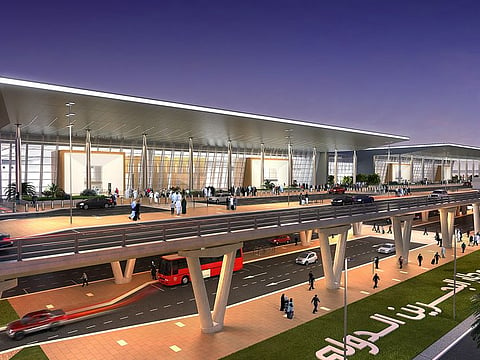Gulf's construction sector will not be shaken by the Omicron: Hill International CEO
For now, the biggest uncertainty for projects relates to surging building material costs

Dubai: Will 2022 be the Year of Revival for the Gulf’s construction sector? Whether it is in the UAE or Saudi Arabia, the last few weeks have seen new projects re-emerge from the pipeline, and with the actual contracts likely to be awarded shortly.
In the UAE, developers – both government affiliated and private – are back to humming the offplan launch tunes, while Saudi Arabia lines up more of its go-for-big tourism destination plans. Other Gulf states are busy with their own priorities, whether it is in the oil and gas space, a mall development, or harnessing renewable energy.
For Hill International CEO Raouf Ghali, each such plan or actual launch comes with possibilities. As one of the world’s bigger project management companies, Hill International is angling for a role at any point along the construction cycle of a project. In a chat with Gulf News, Ghali gives a blueprint of how the company intends to chase growth in 2022.
If we were to play a guessing game, can the Omicron upset the construction industry’s best laid plans?
That’s probably a million dollar question and, truth be said, I don’t know. We have not seen any ongoing impact on any of the projects, whether these are ones that have just started up or restarted, or in those in the procurement stage. Even projects where we are in talks with clients for final negotiations, we are not hearing about any reservations from the project owner.
Omicron and any other mutation that’s coming is normal course when dealing with a pandemic. Yes, contracting it seems much easier. But many say that Omicron is less severe than the original coronavirus.
My gut feeling is there will not be a major disruption from the new virus.
But what about building materials? Will there be any respite next year from the constant price rise?
Everybody is trying to come up with some kind of control because prices of some of these materials have surged in 2021. At the same time, we recognise that this will be a temporary surge until the supply chain and manufacturing catches up.
I think there has been some balance because the pricing was also dictated by speculation and trying to take advantage of the market demand. There is a lot of pushback against that speculation. Plus, with the Omicron around and what it might mean for business activity, some of the strength of the speculation too has waned.
Prices have come down – yes, only on some of the commodities. But contractors are able to negotiate much better prices and in line with what they were earlier. I expect prices will continue to be at these levels until the latter part of next year and by then, things will normalise.
Concrete and steel prices are still above what they were prior to the pandemic. Lumber prices in the US had seen one of the biggest spikes in history. These will ease up in the near future.
Is the Arabian Gulf pulling its weight in Hill International’s numbers?
The US is the largest market we have, with over 45 per cent of revenues derived. In 2021, we had very good growth in the Americas, and the least amount of growth we had was in the Gulf.
A lot to do with not being able to enter different countries of the GCC because of the pandemic. If we can’t enter, we cannot mobilise or remobilise people. There was less appetite for starting new projects in the first-half, but the markets started moving from the third quarter.
It’s going to be a much more robust year for new projects. There will be relaunching some of the infrastructure projects, then there are the PPPs and those projects from the private sector.
We have several large assignments in Saudi Arabia and the UAE, we are working with ADNOC on some of their major facilities. There is also the Sheikh Zayed Museum.
Do you reckon that PPPs (public-private partnerships) will deliver big in 2022?
PPPs have always been around in the Gulf. There is a PPP housing project in Bahrain that we were involved in.
You can either be the independent engineer on the PPP, monitoring the team and reporting back to the government agency that the asset is being implemented at the quality expectations of the contract was scheduled for.
If the investment goes over, it becomes the private sector partner’s risk. Then, you are going to have problems in meeting the RoI (return on investment) expectations. But managed well, PPPs can deliver results.
Do you reckon that with all the cost cutting going on, some might see bringing in project managers as a cost too?
This has been brought up many times. The funny thing we are able to show that project management as a cost probably pays for itself two or three times on any project we work on.
Fact is we have a good database that shows between design reviews, changes to design and making it more streamlined, we make sure we have less room for overdoing the specs.
Having a project manager makes the best sense for the project and its streamlining. It becomes a lot more cost-effective, whether we come at the design stage or during the construction stage.
That in itself saves a lot of money – after all, time equals money in construction. We help deliver that.
Sign up for the Daily Briefing
Get the latest news and updates straight to your inbox

